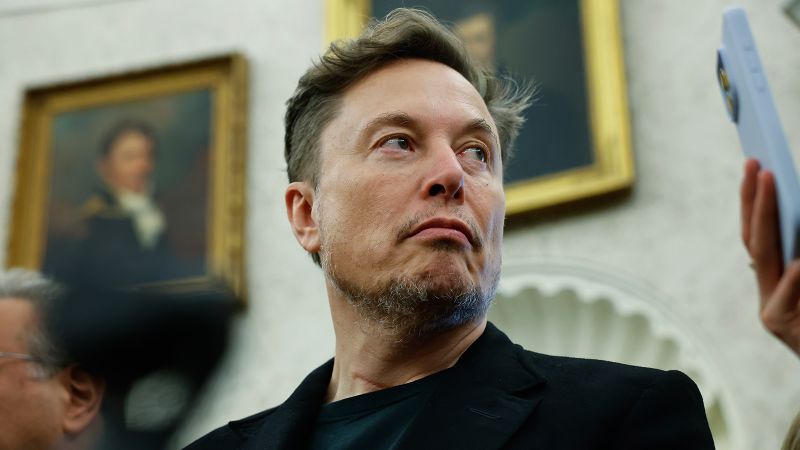Elon Musk, the charismatic CEO of Tesla and SpaceX, made headlines on Wednesday for expressing regret over some of his recent social media posts directed at President Donald Trump. This revelation came as a significant turn of events in the turbulent relationship between the two influential figures, highlighting the unpredictable nature of social media discourse in politics.
In a post shared on the platform X, previously known as Twitter, Musk stated, “I regret some of my posts about President @realDonaldTrump last week. They went too far.” This acknowledgment of overstepping in his social media comments illustrated Musk’s willingness to reassess his online conduct, even amid the often heated and controversial environment that characterizes political discussions on social media.
The relationship between Musk and Trump had seen a dramatic decline just a week prior, becoming the subject of public speculation and intrigue as both figures exchanged barbs on their respective social media platforms. Until that point, Musk had held a position of close proximity to Trump, serving as a key ally and co-head of the Department for Government Efficiency during his administration. This collaboration had notably involved Musk leading a push for significant reductions in the workforce of federal employees—a move that garnered both support and criticism.
However, the tides began to turn when Musk publicly criticized Trump’s ambitious tax and domestic policy bill, characterizing it as a “disgusting abomination.” His condemnation was based on concerns that the legislation would have detrimental consequences for U.S. government finances. This marked a pivotal moment in their relationship, signaling a shift from mutual support to public criticism.
Musk further intensified his critique by amplifying historical comments from Trump and other Republican lawmakers that raised alarms about government spending and the burgeoning budget deficit. This tactic of revisiting prior statements served not only to underscore Musk’s new stance but also to position him more firmly as a critic of fiscal policies associated with the Trump administration.
In the aftermath of Musk’s retraction of his harsh criticism, there was a notable impact on Tesla’s stock performance. Shares of the electric vehicle manufacturer, listed on the Frankfurt Stock Exchange under the ticker TSLA, experienced a notable uptick, rising 2.4% shortly after Musk’s conciliatory comments. This increase may reflect investor sentiment favorably responding to Musk’s attempts to navigate the treacherous waters of political commentary, particularly as it pertains to his business interests.
The ongoing evolution of the Musk-Trump relationship serves as a poignant reflection of the broader dynamics at play in contemporary political discourse, especially within the realm of social media. Musk’s swift pivot from ally to critic and back again is indicative of how quickly relationships in the political landscape can shift, influenced by public perception and the pressures of social media interactions.
As the story continues to develop, it highlights a crucial dimension of public life: the inherent volatility of personal and political relationships in an age where management of one’s image across platforms can significantly affect both personal standing and market performance. The complexities of Musk’s interaction with Trump not only mirror the individual narratives of these prominent figures but also encapsulate the ever-changing currents of American political life.
In conclusion, this developing tale serves as a reminder of the interconnectedness of personal relationships, social media dynamics, and financial markets, showcasing how one influential figure’s commentary can reverberate across multiple spheres, shaping public discourse in unpredictable ways. As such, the world will need to stay tuned for further updates as both Musk and Trump navigate their paths forward.











